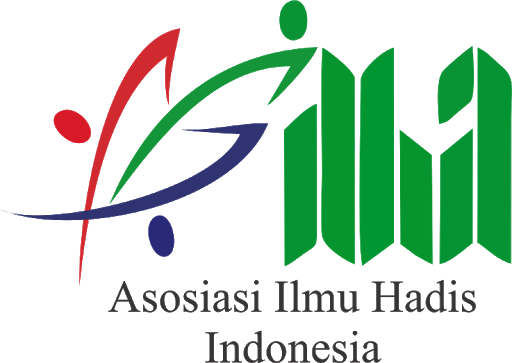Reexamining the Credibility of the Joseph Schacht Concept of Sanad Hadith
Menguji Kembali Kredibilitas Konsep Joseph Schacht terhadap Sanad Hadis
DOI:
https://doi.org/10.14421/livinghadis.2023.4543Abstract
Joseph Schacht, through the book The Muhammadan Jurisprudence, raises a criticism of sanad which considers that hadith did not start from the Prophet, but from tabi'in. It's just that Schacht's concept is considered weak because he is inconsistent and forgets a lot of data and important aspects in the study of hadith. This article appears as the author's attempt to explain the concepts promoted by Schacht and also some of the problems carried out by Schacht. With the help of the descriptive-analytical method combined with a comparison of experts' arguments as a medium of analysis, it can be seen how gaps emerge in Schacht's attitude. The results of the analysis explain that the Schacht controversy is related to; first, Schacht's rejection of the hadith which is not in line with the data of the companions which are part of the hadith; secondly, the theory built by Schacht can be said to be very weak, because much of the data found refutes Schacht's hypothesis; third, there is subjectivity in the use of data and analysis results; and fourth, Schacht, who is known as an expert in Islamic law, should study hadith, but he does not believe that hadith comes from the Prophet.
References
Akbar, A. O. (2019). Mendiskusikan Kembali Sistem Sanad: Antara Penalaran Mustafa Azami dan Joseph Schacht. Syaksia: Jurnal Hukum Perdata Islam, 20(02).
al-Ghazali, A. H. (n.d.). Al-Mustashfa min ’Ilm al-ushul.
al-Hajjaj, M. ibn. (2014). Shahih Muslim. Dar al-Tashil.
al-Maliki, M. I. A. (2002). Qawaid al-Asasiyyah fi Ilmi Mushthalah al-Hadits.
Albab, M. U. (2021). Menyoal Koneksitas Kritik Hadits Ignaz Goldziher dan Joseph Schacht. An-Nisa’: Journal of Gender Studies, 14(01).
Arafat, A. T. (2017). Mata rantai sufi perawi hadis dalam al-Kutub at-Tis‘ah. UIN Walisongo.
Azami, M. M. (1986). Studies in Early Hadith Literature. Islamic Book Trust.
Azami, M. M. (2004). Menguji Keaslian Hadis-Hadis Hukum (A. M. Yaqub, Trans.). Pustaka Firdaus.
Indah S, N., Albana, M. A., & Sumbulah, U. (2021). Joseph Schacht, Teori Skeptisme Hadis dan Bantahan-Bantahannya. Diya Al-Afkar: Jurnal Studi al-Quran Dan al-Hadis, 09(01).
Iskandar, A., & Umardani, D. (2020). Analisis dan Kritik pada Pandangan Joseph Schacht terhadap Hadis dan Hukum Islam. Jurnal Studi Hadis Nusantara, 2(1).
Ismail, M. Sy. (2005). Kaidah Kesahihan Sanad Hadis: Telaah Kritis dan Tinjauan dengan Pendekatan Ilmu Sejarah. Bulan Bintang.
’Itr, N. (2017). ’Ulumul Hadis. Rosdakarya.
Malik Ibn Anas. (2003). Al-Muwaṭṭa’ (Vol. 4). Majmu’ah al-Furqan al-Tijariyyah.
Muslim Ibn al-Hajjaj. (2014). Shahīh Muslim wahuwa al-Musnad al-Shahīh (Vol. 7). Dar al-Tāshil.
Muslim Ibn al-Hajjaj. (2014). Shahīh Muslim wahuwa al-Musnad al-Shahīh (Vol. 1). Dar al-Tāshil.
Nugroho, I. Y. (2020). Orientalisme dan Hadits: Kritik terhadap Sanad menurut Pemikiran Joseph Schacht. Asy-Syari’ah: Jurnal Hukum Islam, 6(2). https://doi.org/10.36835/assyariah.v6i1.278
Oktaviani, S. (2023). Pemikiran Joseph Schacht terhadap Hadis. TAMMAT (Journal Of Critical Hadith Studies), 1(1).
Ong, W. J. (2002). Oralitiy and Literacy.
Saefulloh, A., Maghfur, A., & Sumbulah, U. (2021). Teori Dekonstruksi Hadis Josep Schacht dan Bantahan Musthafa Azami. Analisis: Jurnal Studi Keislaman, 21(2).
Schacht, J. (1967). The Origin of Muhammadan Jurisprudence. Oxford University Press.
Siddiqi, M. Z. (1993). Hadith Literature: Its Origin, Development, Special Features, and Criticism. Islamic Book Trust.
Suadi, H. (2016). Menyoal Kritik Sanad Joseph Schacht. Riwayah: Jurnal Studi Hadis, 02(01).
Thahan, M. (1985). Taisir Mushthalah hadis. Haramain.
Yurisprudensi. (2017). Pengadilan Agama Kota Cimahi Kelas I A. https://www.pa-cimahi.go.id/hubungi-kami/peraturan-dan-kebijakan/yurisprudensi#:~:text=Pengertian%20Yurisprudensi%20adalah%20keputusan%2Dkeputusan,menyelesaian%20suatu%20perkara%20yang%20sama.
Downloads
Published
Issue
Section
License
Copyright (c) 2024 Ahmad Ubaidillah Ma'sum Al-Anwari, Muhammad Iqbal Trenggono, Muhammad Fahrul Asyahudi

This work is licensed under a Creative Commons Attribution-ShareAlike 4.0 International License.
- Authors who publish with this journal agree to the following terms:
- Authors retain copyright and grant the journal right of first publication with the work simultaneously licensed under a Creative Commons Attribution License that allows others to share the work with an acknowledgement of the work's authorship and initial publication in this journal.
- Authors are able to enter into separate, additional contractual arrangements for the non-exclusive distribution of the journal's published version of the work (e.g., post it to an institutional repository or publish it in a book), with an acknowledgement of its initial publication in this journal.
- Authors are permitted and encouraged to post their work online (e.g., in institutional repositories or on their website) prior to and during the submission process, as it can lead to productive exchanges, as well as earlier and greater citation of published work.
















